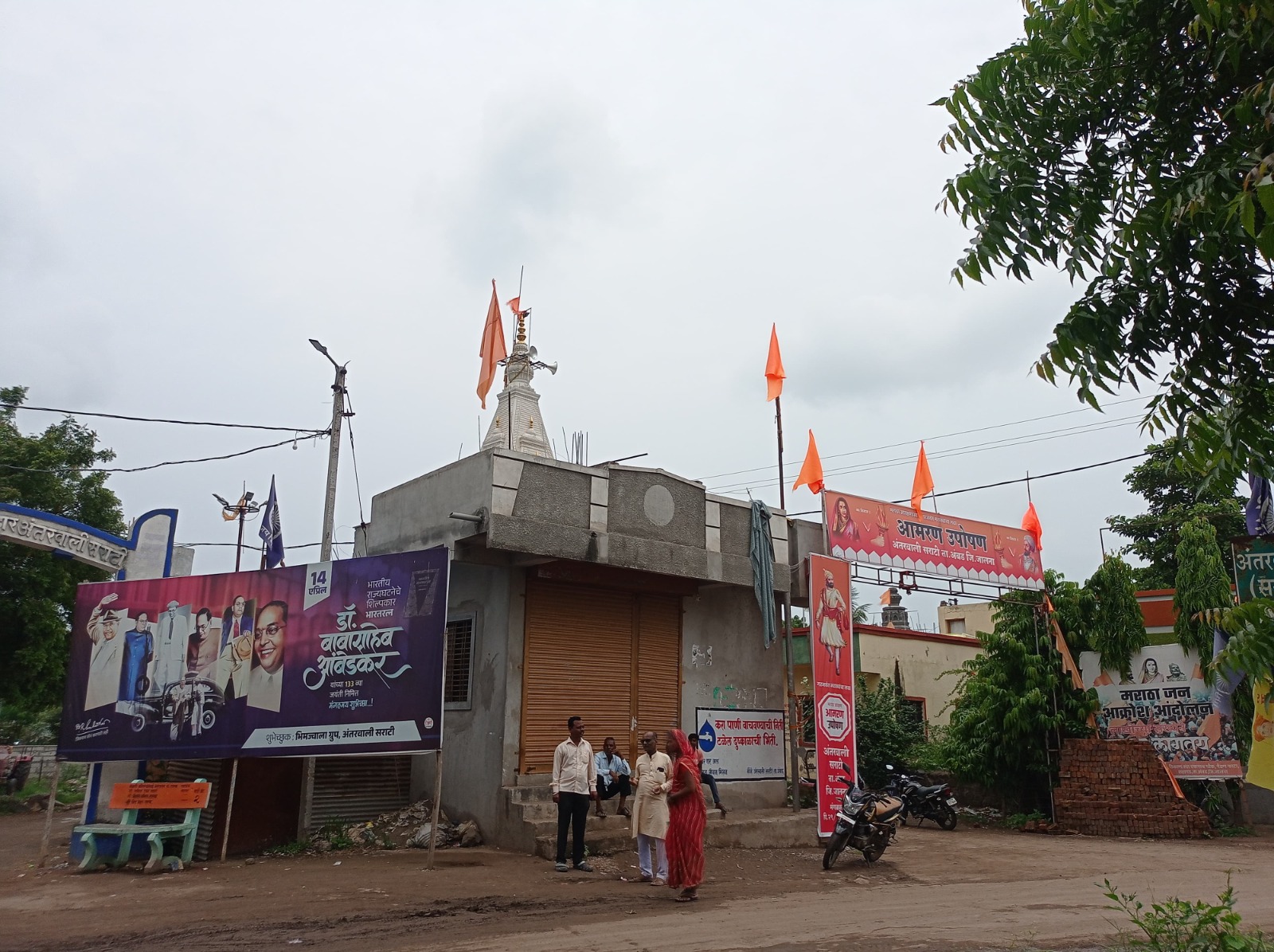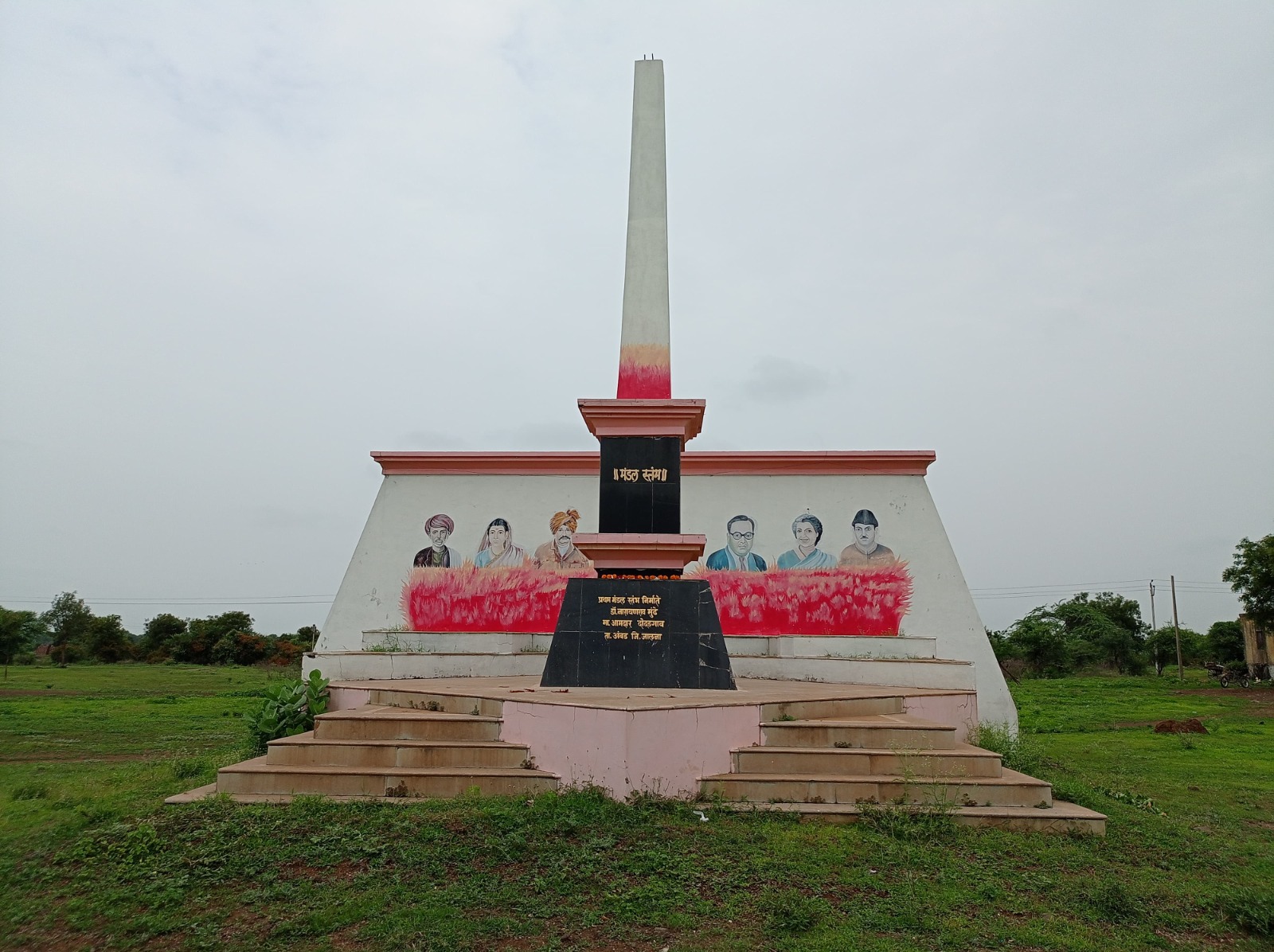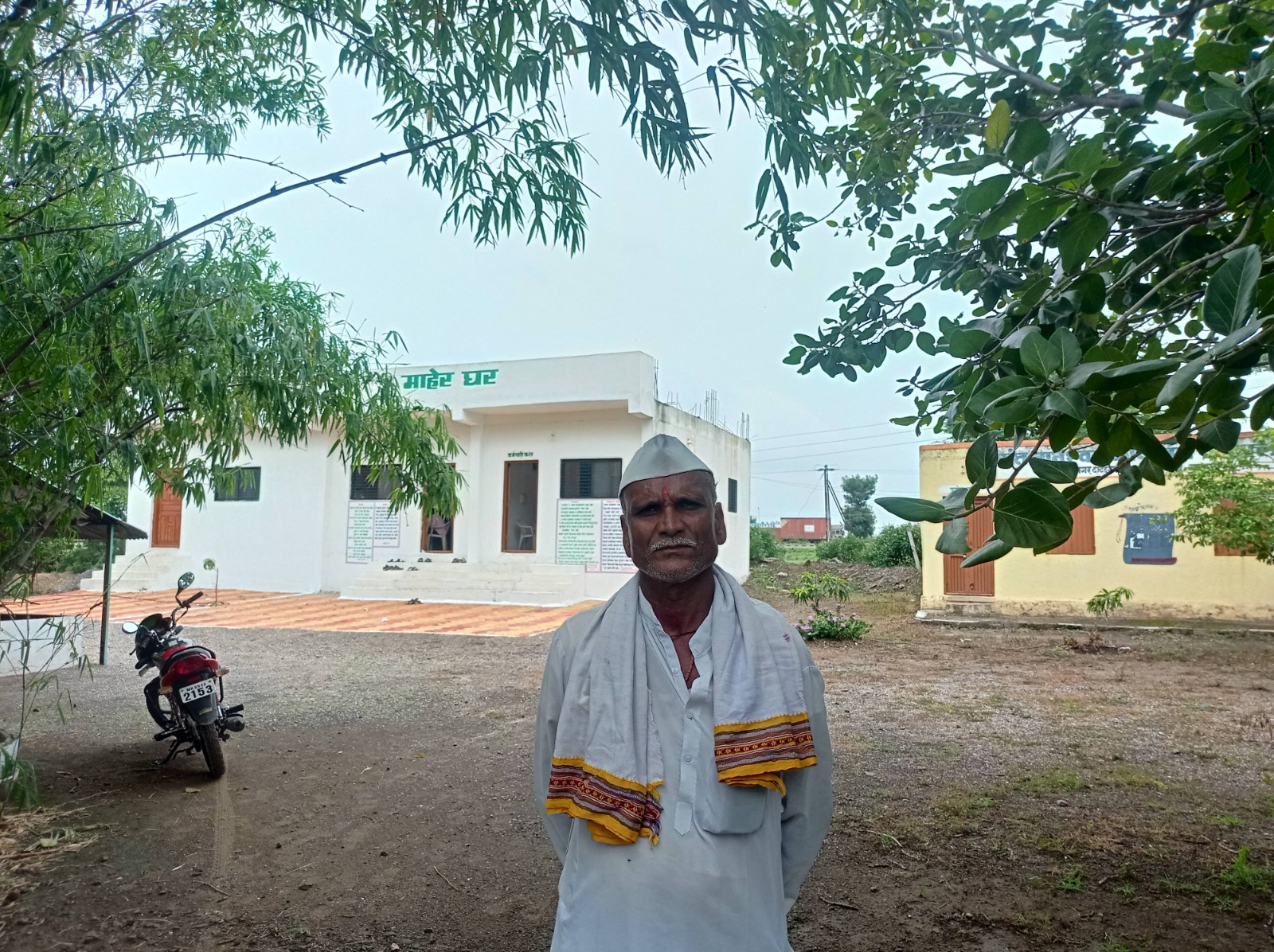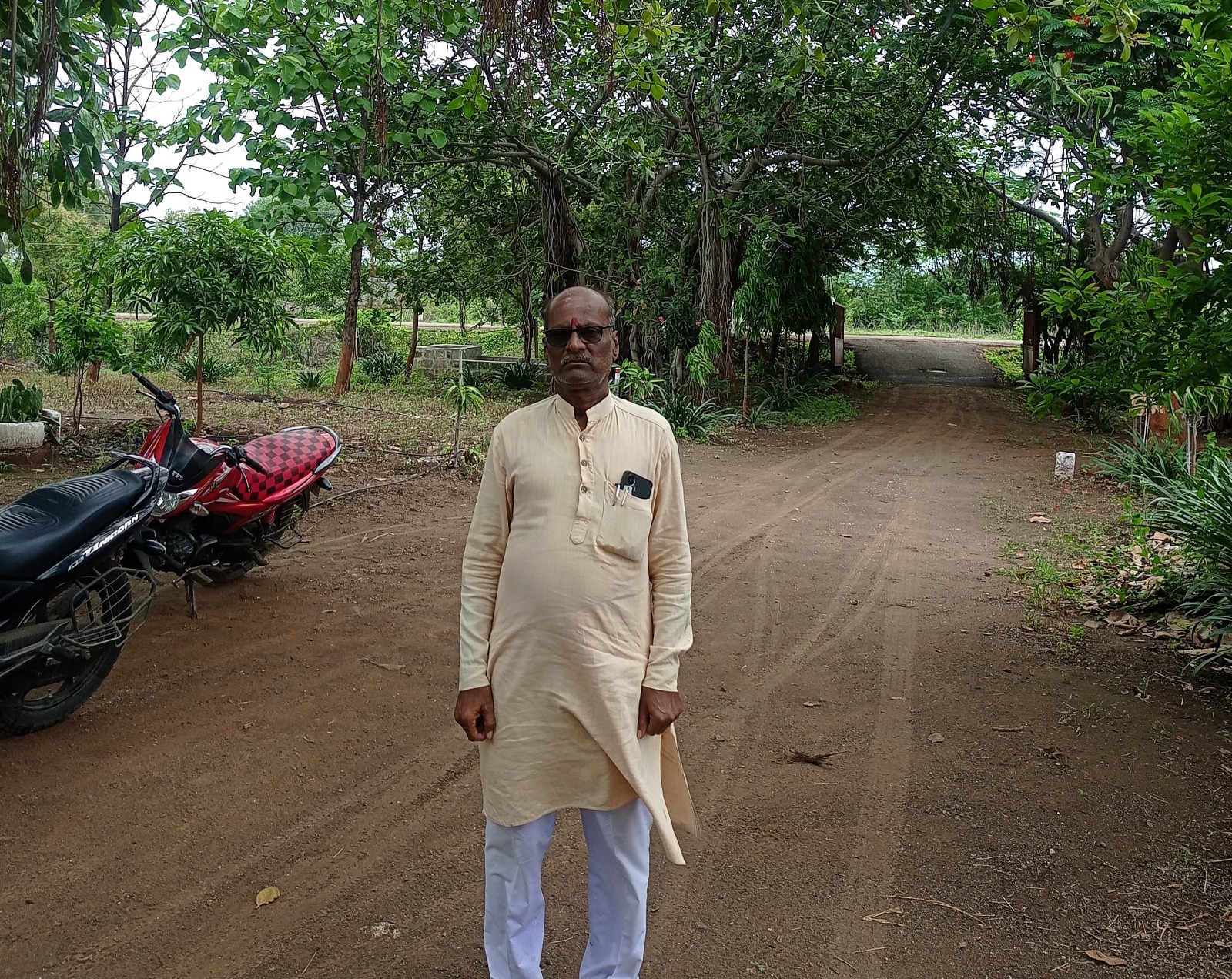Maratha Reservations vs. OBC Quotas: A Deepening Divide in Maharashtra’s Rural Heartland

Aqib Nazir and Azib Ahmed, TwoCircles.net
On the morning of October 14, in Antarwali Sarathi, members of the Other Backward Classes (OBC) community gathered to support a Maratha rally. They provided tea and water for the Maratha participants, showing solidarity. However, Maratha leader Manoj Jarange’s speech, in which he demanded reservations from the OBC quota, sent shockwaves through the OBC supporters present.
“As soon as we heard his demands, we were shocked because we never expected such words from someone we had supported from the beginning,” says Balasaheb Dakhane, a social activist from the OBC community in Antarwali Sarathi.
Initially, when Jarange protested for Maratha reservations in August 2023, many OBC villagers supported him, believing their own community could also benefit from increased financial strength. However, the demand for reservations from the OBC quota led to a united backlash from the OBC community. This culminated in a rally against the Marathas in Ambad taluka of Jalna district, attended by prominent OBC leaders like Chagan Bhujbal, an MLA and minister in Maharashtra’s government.
“We demanded that the government should not allocate reservations from our quota,” states Dakhane.
Historically powerful Marathas, facing financial difficulties, are now fighting for OBC reservations. Meanwhile, the historically marginalized OBCs are protesting to defend their government employment and educational quotas.
In the peaceful villages of Antarwali Sarathi and Wadigodri in Jalna district, unrest has erupted into full-scale protests, marking a turbulent chapter in the state’s socio-political fabric. At the core of this unrest is the heated debate over reservation rights, which has set the Maratha community against the broader category of Other Backward Classes (OBCs).
[caption id="attachment_450364" align="aligncenter" width="1600"] The Madal Stambh' at Dodadgaon, believed to erected in the early 2000s as a tribute to Mandal Commission's report for OBC reservations.[/caption]
The Madal Stambh' at Dodadgaon, believed to erected in the early 2000s as a tribute to Mandal Commission's report for OBC reservations.[/caption]
Origins of Conflict
The conflict’s origins trace back to the Mandal Commission of 1994, which included the agrarian Kunbi caste in the OBC category. Recent developments, particularly the Supreme Court's decision in 2020 to strike down the Maratha reservation law for breaching the 50% cap on reservations, have reignited tensions.
The Jarange Patil Factor
Central to the unrest is Manoj Jarange Patil, a polarising figure whose hunger strike for Maratha reservations has galvanized support and stirred controversy. Originally from Beed district, Jarange Patil initially found support in Antarwali Sarathi. However, his demand for Maratha reservations from the OBC quota caused distress among OBC villagers.
“When he first came from Beed with nothing, we supported him wholeheartedly,” recalls Balasaheb Batude, an OBC farmer from Nalewadi, a village two kilometers from Antarwali Sarathi. “But when he began demanding Maratha reservations from our quota, it felt like a betrayal.”
Jarange Patil’s actions sparked a chain reaction across Maharashtra, prompting robust OBC protests in Ambad taluka and Wadigodri village, reflecting a community united in their resolve to protect their rights. “We will not let anyone snatch away our reservations,” says Batude, who participated in a 10-day hunger strike led by OBC activist Laxman Hake in Wadigodri.
[caption id="attachment_450361" align="aligncenter" width="1600"] Balasaheb Batude, a Social activist from OBC Community[/caption]
Balasaheb Batude, a Social activist from OBC Community[/caption]
Community Rifts
Amidst the protests, political opportunism is evident. Protesters like Bapurao Tukaram Khetke lament the widening gap between Marathas and OBCs, exacerbated by politicians exploiting communal fault lines for electoral gains. “These divisions are tearing at the fabric of our villages,” Khetke observes. “Our children are growing up amidst caste animosities that were once unthinkable.”
Batude, a 53-year-old farmer who travels daily from Nalewadi to Antarwali Sarathi, notes, “I have come to Antarwali Sarathi since I was a kid. I feel the difference in relationships among people of different communities. The friends I used to have tea with every evening no longer sit and chat. We avoid eye contact now.”
Bhandas Kekan, 65, an OBC villager, believes the rift between the two communities has been exacerbated by the reservation protests in Antarwali Sarathi and Wadigodri. “I think it will take a long time to bridge this gap,” Kekan adds.
Beyond the political wrangling, the protests have profoundly impacted everyday life in rural Maharashtra. Kishor Vasantrao Rhodi, an OBC resident, reflects on the personal implications. “My son is just starting his education. I hope he can benefit from the reservations I never fully utilized,” he says. “But these debates have poisoned relations between neighbors who once shared daily routines.”
Ankush Ganpatrao Tarak, a Maratha activist supporting Jarange Patil, acknowledges the closeness between the two communities in Antarwali Sarathi, where communal relations were once strong. “We gather daily at the temple, yet tensions simmer beneath the surface,” he admits.
When asked about the rift between Marathas and OBCs, Jarange Patil blames OBC leader Chagan Bhujbal, claiming he is spreading falsehoods and agitating people. “There is unity and tranquility among all communities in my village,” Jarange Patil asserts.
Maratha resident Vijay Tarak, 41, counters the notion that the village is unfriendly, emphasizing Marathas' helpful nature across Maharashtra. “During a recent yatra (march) to Pandharpur, people from Maratha and OBC communities traveled together in the same truck,” Tarak says. “In our village, Hindu rituals like kirtan involve members of various communities, including OBCs.”
Despite claims of discord, Tarak maintains that OBC villagers’ dissatisfaction is politically motivated. “The OBC politicians are the only ones displaying wrath for political purposes. The people do not have issues with us,” he asserts. “OBC villagers might express anger, but it is not reflective of the reality.”
Jarange Patil is also working to gather support from various communities, including Muslims and Dhangars, ahead of the upcoming assembly elections. “Jarange Patil is touring villages across Maharashtra and receiving substantial support from various communities,” Tarak adds.
The historical context adds layers to the debate. In the 1960s, Panjabrao Deshmukh attempted to include Marathas from Vidarbha in the Kunbi category, but this was rejected by Marathas from Marathwada. Today, these historical rifts resurface as Maratha leaders like Jarange Patil demand reservations perceived by OBC communities as encroaching on their quotas. This not only fuels legal disputes but also deepens societal divisions.
In Wadigodri, Bapurao Tukaram Khetke laments the destruction of once-close relationships due to reservation politics. “Children who played together now form groups based on caste,” he says. “It’s a tragic consequence of political agendas that prioritize votes over unity.”
Kishor Vasantrao Rhodi, a father in Antarwali Sarathi, hopes his son can benefit from OBC reservations despite his own struggles. “I left school after the 10th grade, but now I want my son to have the opportunities I missed.”
[caption id="attachment_450362" align="aligncenter" width="1600"] Balasaheb Dakhane, a social activist from OBC Community[/caption]
Balasaheb Dakhane, a social activist from OBC Community[/caption]
Challenges and Calls for Resolution
The challenge for Maharashtra's leadership is significant. Political analyst Sanjeev Unhale explains, “The state’s progressive image is at stake. We've never seen such animosity between Marathas and OBCs before.”
Dialogue and a fair resolution are urgently needed yet remain elusive. Meanwhile, Jarange Patil remains committed to his cause, viewing his struggle as a fight for justice and equality across marginalized communities. “We must stand united against political plots that divide us,” he urges.
As Maharashtra prepares for the 2024 assembly elections, the Maratha vs. OBC reservation issue remains central. The stance of both communities will shape the political landscape. Unhale highlights the electoral implications: “Marathas hold sway in numerous constituencies, and their stance will be pivotal. Jarange Patil’s influence could significantly affect election outcomes and political strategies.”
The Maratha factor had previously influenced the NDA’s Lok Sabha seats from Maharashtra. “There are about thirty Marathas in the Lok Sabha, indicating significant Maratha influence,” Unhale adds.
Khetke also emphasizes that voting decisions will be based on candidates rather than parties. “We will vote for the candidate who best represents us, regardless of their party affiliation. If OBC candidates run, we will support them; if not, we will choose NOTA,” he says.
Currently, despite visits from BJP-led NDA government ministers, a resolution remains elusive. “The government must clarify its stance on Maratha reservations. Despite numerous discussions over the past eleven months, no decisions have been made,” says Ankushrao Tarak.
The ongoing protests reflect a struggle for identity and justice, transcending legalities to become a deeper socio-political issue.
